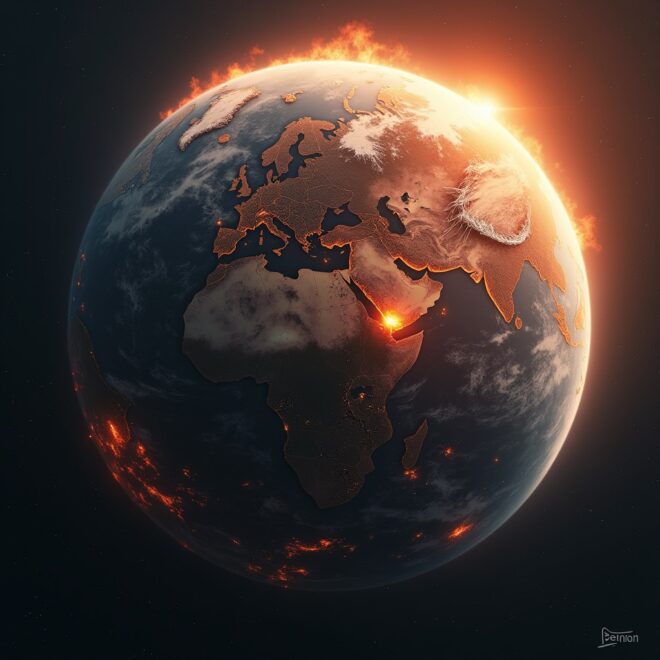
In the transformative year of 1988, amidst the shifting political landscape of the United States, a significant promise emerged as the nation approached its 41st Presidential election. George H. W. Bush declared a plan to tackle “the greenhouse effect with the White House effect.” Though this pledge likely aimed to inspire confidence and rally public enthusiasm, it has become a symbol of a broader political pattern where grand statements about climate change outshine the follow-through.
Today, it’s clear that Bush’s promise remains unfulfilled. Subsequent administrations, too, have failed to take the bold steps needed to address the intensifying climate crisis. The result is a collective inaction from leaders both domestically and internationally, allowing a once-theoretical threat to become a pressing and undeniable issue. The effects of climate change have moved beyond academic discourse, becoming real-life challenges impacting millions every day.
Throughout history, humanity has faced many trials—from wars and peace treaties to economic collapses and rebounds, famines, and terrorism. We’ve survived dictatorships and defied ideologies that threatened our common welfare. Yet, climate change presents a distinct challenge, differing from these historical battles. It’s not a cyclical issue that diplomacy or economic recovery can solve; it’s a profound alteration of Earth’s life-sustaining conditions.
Recent research, notably a revealing study in Nature Climate Change, underscores the severity of our situation. Scientists highlight that the environmental changes we’ve wrought could last longer than human civilisation has existed. This stark realisation calls us to reevaluate how we interact with the planet and the legacy we leave behind. The implications of climate change—rising seas, severe weather, loss of biodiversity, and food insecurity—are no longer distant threats; they are here now, impacting ecosystems and human communities profoundly.
Addressing the challenges of climate change demands an all-encompassing, immediate response that surpasses political and geographic boundaries. It requires a unified approach from governments, businesses, and individuals, emphasising sustainability and responsible environmental practices. Past promises must transform into concrete commitments, resonating with the urgency we face today.
As we consider past pledges, we must hold leaders accountable, demanding transparency and sincerity in environmental policies. We should encourage innovation and investments in renewable energy, sustainable agriculture, and conservation. Moreover, as engaged citizens, we must advocate for change, support policies prioritising planetary health, and adopt daily habits that foster a sustainable future.
In closing, the path to effective climate action is laden with hurdles, yet it is a journey we must undertake with vigour and purpose. The era for empty pledges is over; what we require now is a shared promise to protect our planet for the future. Rather than letting leaders’ words, like George H. W. Bush’s, dissolve into mere rhetoric, we need to transform them into a rallying cry for action, resonating across every societal level. Together, we can face the reality of climate change and strive for a sustainable and just future for all.


